Reverse migration: Why I'm moving from France to Algeria
- Published
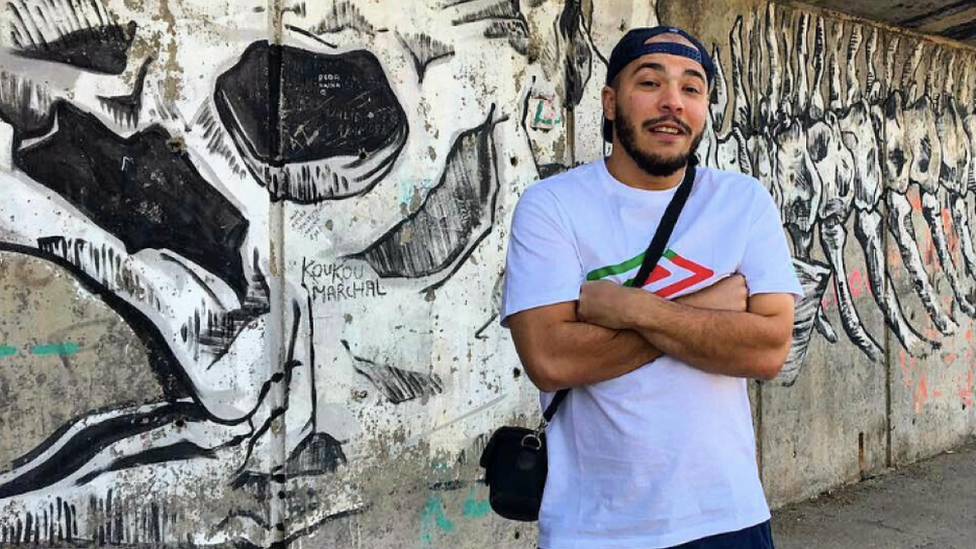
In our series of letters from African journalists, Maher Mezahi reflects on why he's taken the decision to leave France and return to Algeria, where his family originally comes from.

Every immigrant family has that one person who is overly critical of anything related to their country of origin.
In a family discussion you can mention a fruit that grows back home and they'll reveal that its price has more than tripled in the last year.
News will arrive about a niece or nephew that has graduated from secondary school and they'll bemoan that it's all for naught because the quality of education is shambolic.
Growing up, my father was that family member and so my trips to Algeria - I was living in Canada at the time - were coloured with bitter remarks and heavy paranoia.
I surmised that his pessimism stemmed from the guilt of abandoning everything he knew, and his criticism seemed like a way to rationalise his departure, mostly to himself.
As a result, I couldn't really form my own judgments about living in Algeria until I began going there alone as a young adult.
Around that time, I fell madly in love with African football and came to the conclusion that the only way I could properly pursue a career in football journalism was to "move back" to Algeria.
A lot has been written about "reverse immigration", and how the children of first-generation immigrants "return" to their country of origin to rediscover lost wisdoms, grow closer to extended family and mend the identity crises.
They often make for heart-warming stories, but the older generations are more cynical and make off-shoot remarks like: "Wait until they have to do any paperwork at any government agency."
I still vividly remember a dinner conversation in our family living room back in Canada one night, as I insisted that it was time I move to Algiers.
"I give him two years," my older brother said with a smile on his lips.
"Two years? More like two months," my father shot back.
Bets on how long I could last in Algeria became a game that even the extended family would take part in over the next months.
I ended up lasting six years.
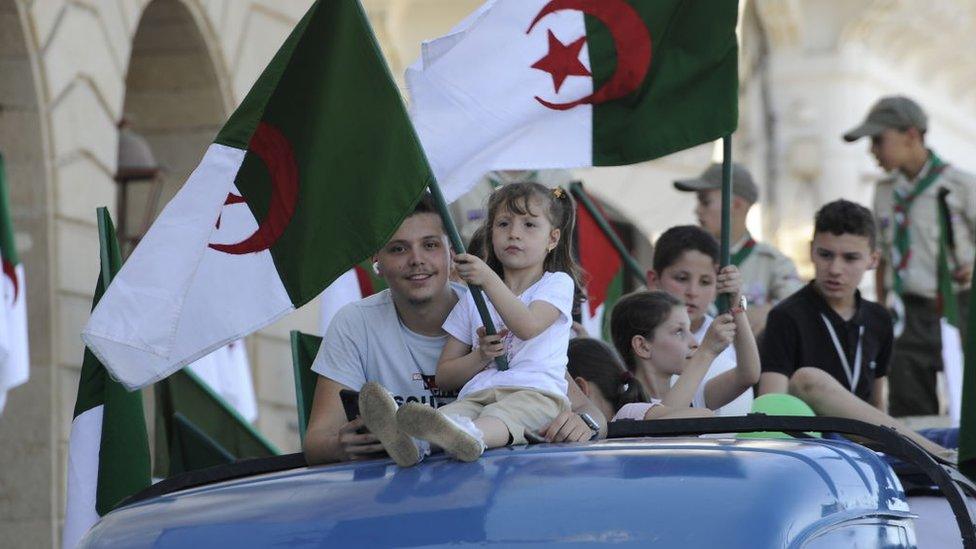
Algeria gained independence from France in 1962
The first couple of years in Algiers were extremely exciting.
There was an influx of journalists, young professionals, and entrepreneurs from the diaspora who had arrived around the same time as me in the mid-2010s.
The country's economy had been booming for five years, and it felt like the possibilities were endless.
English language schools were sprouting up all over the capital like wild mushrooms.
Algeria were fresh from an inspiring run at the 2014 Fifa World Cup, and the scintillating performances of its international football players like Yacine Brahimi and Riyad Mahrez ensured that a spotlight was shone on our football.
For a journalist who taught English as a second language on the side, it was a perfect fit.
But anyone who's lucky enough to become a fully fledged adult knows that eventually we all become like our parents.
And although I don't think that I loudly bemoan Algeria's problems on a regular basis, I did end up finding a few excuses to leave a year and a half ago.
For me, it was a combination of suffocating travel restrictions due to the Covid-19 pandemic (Algerian borders were closed for nearly two years) and a rollback in civil liberties which made practising journalism much more difficult.
I also got to a point in my life where I wanted to "experience something different" and that led me moving to Marseilles in the south of France.
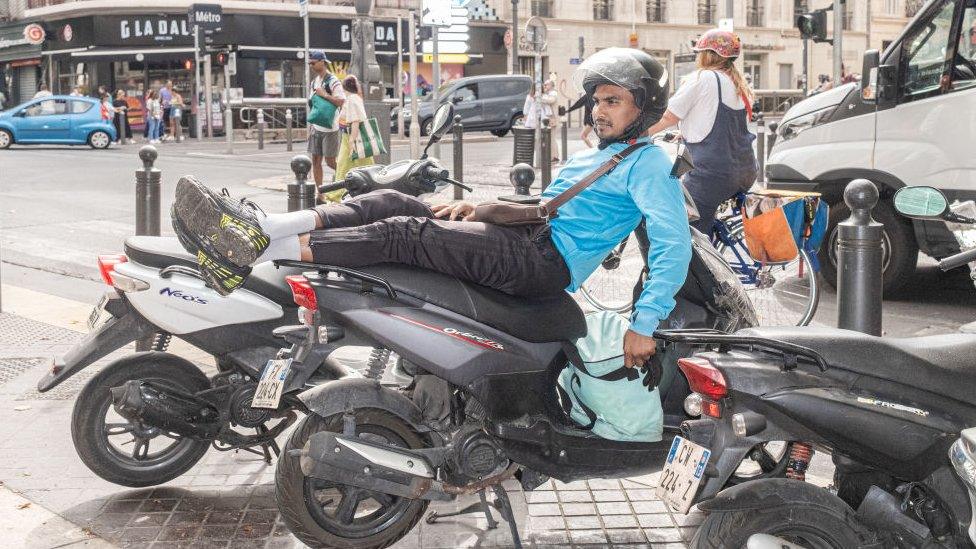
Marseille is France's second biggest city, and has a large immigrant population
With its stunning architecture, buttery pastries and sunny weather, there obviously hasn't been a shortage of worldly indulgences, yet I very, very quickly realised that it wasn't for me.
I think the main reason that I've felt out of place is that I'm not reporting on African football on the ground.
Nothing in this world can replace the feeling of knowing that you have found your true calling and realising that you're contributing, even in a small way, to your chosen field.
But in addition to the joy that journalism and storytelling give me, other more trivial things are pulling me back.
It's hailing a taxi (still affordable as a daily mode of transportation in Algeria), making a new friend on your commute, and taking a bite into the small sardines that are caught off the coast.
I've realised that on life's journey, if you find happiness in the banalities of day-to-day life, then it's usually a good place to stop and pitch your tent.
And so now I'm preparing to "reverse immigrate" for a second time, and it's been a time of reflection.
I've been contrasting the excitement and sentimentality of my first move in 2016 to what I feel today.
I'm not nearly as excited as I was then, there's a lot less to discover and the novelty has completely worn off.
I'm already weary of the relentless bureaucracy, precarious justice system and difficulties in finding specialised health care if needed.
Yet, the list of disadvantages wither away when I realise that I'm going home to do what I love the most in the place that I love the most.
And that's a feeling I hope everyone feels at least once in their lives.
More Letters from Africa:
Follow us on Twitter @BBCAfrica, external, on Facebook at BBC Africa, external or on Instagram at bbcafrica, external

Related topics
- Published6 July 2023
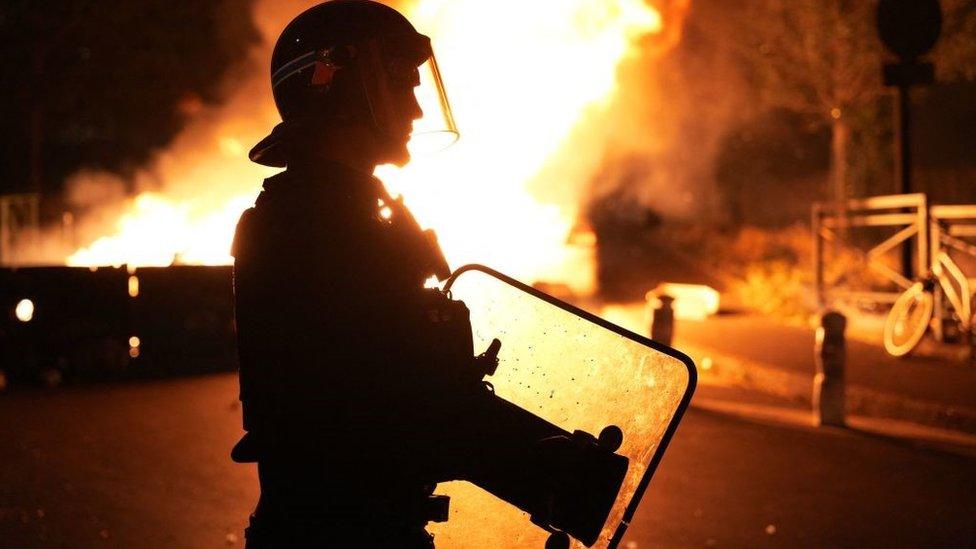
- Published28 March 2023
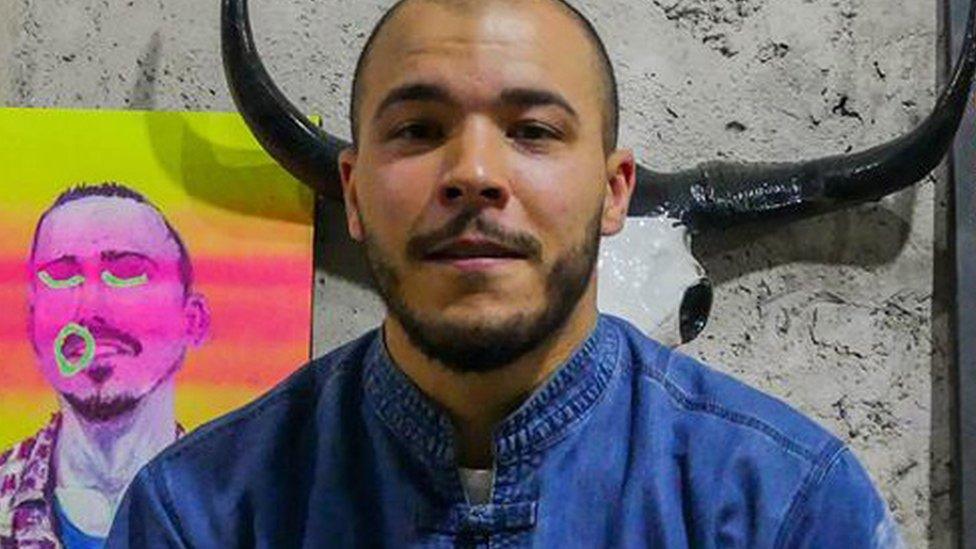
- Published26 September 2023
